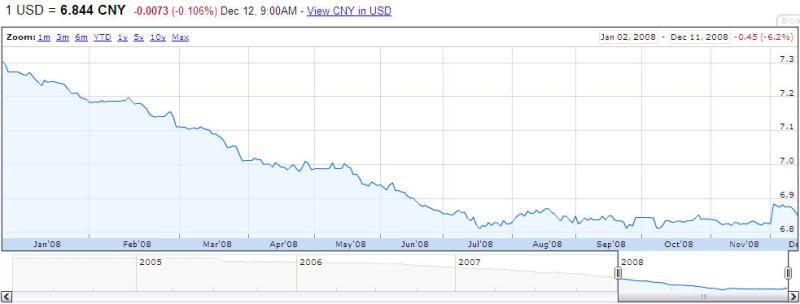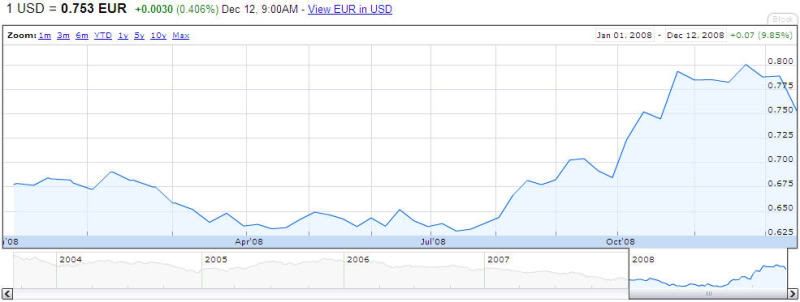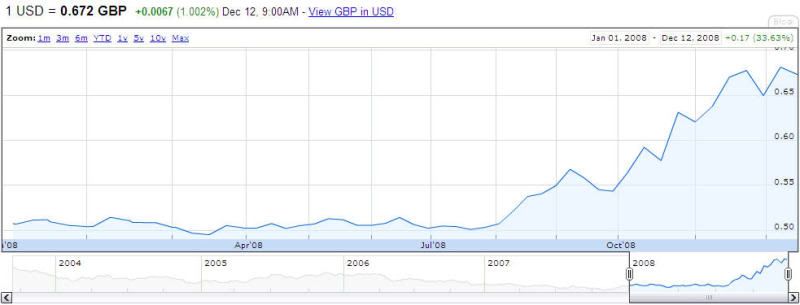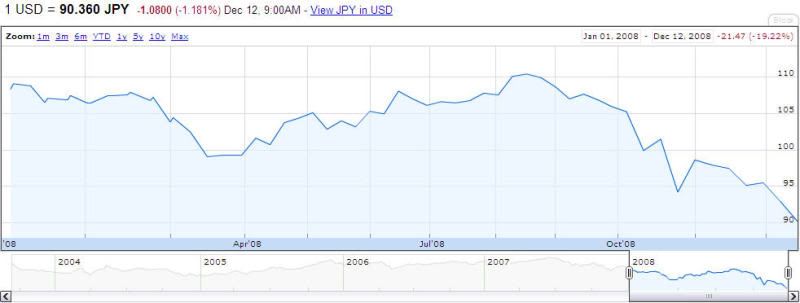http://www.cnbc.com/id/28312112
ล่าสุดประกาศอุ้ม 3 ค่ายรถแล้ว
แต่ dow jone ดันไม่ขึ้น
อย่างที่หมอด้าเคยบอกก็คือว่า ตลาดไม่ได้สนใจเรื่องนี้เท่าไหร่ อยู่แล้วใช่ไหมครับ
เพราะตลาดคิดว่าอุ้มไป ซักพัก ไอ้ 3 บริษัทนี้ก็ช่วยตัวเองไม่ได้
แล้วสถานการณ์โดยรวมก็ไม่ดีขึ้นอยู่ดี
ดูเหมือนตลาดจะสนใจข่าวที่วันนั้น morgan stanley ประกาศขาดทุนมากกว่าอีก เพราะ dow ล่วงไป 200 กว่าจุด
และอยากถามความเห็นเรื่องที่ boj ลดดอกเบี้ยล่าสุดว่ามีผลยังไงบ้าง
และจะส่งผลให้ค่าเงินเยนอ่อนลงได้มากน้อยแค่ไหนครับ
นี้เป็นรายละเอียดข่าว 3 ค่ายรถนะครับ
General Motors and Chrysler will receive up to $17.4 billion in short-term loans from the US government in return for deep concessions, including giving the government the option of taking a partial stake in the companies.
Citing danger to the national economy, the Bush administration approved an emergency bailout of the two auto makers on Friday.
AP
--------------------------------------------------------------------------------
"Allowing the auto companies to collapse is not a responsible course of action," President Bush said in announcing the plan at the White House. Bankruptcy, he said, would deal "an unacceptably painful blow to hardworking Americans" across the economy.
According to details of the plan made available to CNBC.com, the package involves $13.4 billion in immediate short-term financing from the $700 billion Wall Street bailout fund, known as TARP.
General Motors [GM 4.49 0.83 (+22.68%) ] will get $9.4 billion and Chrysler will get $4 billion. Both companies, which have said they soon might be unable to pay their bills without federal help, are expected to tap that money immediately.
Ford Motor [F 2.95 0.11 (+3.87%) ], which says its liquidity is adequate for now, is not included in the package announced Friday. The automaker still seeks a $9 billion line of credit from the federal government, the Wall Street Journal reported.
An additional $4 billion will be made available in February, though that will be contingent on drawing down the remaining $350 billion of the TARP fund.
The rescue package includes limits on excecutive pay and warrants for non-voting stock. That will give the government the option of becoming a stockholder in the companiesmuch as it has with major banksin effect partially nationalizing the industry.
Bush's plan is designed to keep the auto industry running in the short term, passing the longer-range problem on to the incoming administration of President-elect Barack Obama.
Bush said the rescue package demanded concessions similar to those outlined in a bailout plan that was approved by the House but rejected by the Senate a week ago.
It would give the automakers three months to come up with restructuring plans to become viable companies. If they fail to produce a plan by March 31, the automakers will be required to repay the loans, which they would find all but impossible.
"The time to make hard decisions to become viable is now, or the only option will be bankruptcy," Bush said. "The automakers and unions must understand what is at stake and make hard decisions necessary to reform."
CNBC.com
Big 3 Bailout
--------------------------------------------------------------------------------
He said the companies' workers should agree to wage and work rules that are competitive with foreign automakers by the end of next year.
And he called for elimination of a "jobs bank" programnegotiated by the United Auto Workers and the companiesunder which laid-off workers receive unemployment benefits and supplemental pay from their companies for 48 weeks. Early this month, the UAW agreed to suspend the program.
Under terms of the loan, GM and Chrysler must provide the government with stock warrants giving it the option to buy GM and Chrysler stock at a specific price.
In addition, the auto makers would be required to agree to limits on executive pay and eliminate some perks such as corporate jets.
Friday's rescue plan retains the idea of a "car czar" to make sure the auto companies are keeping their promises and moving toward long-term viability. The short-term overseer will be Treasury Secretary Henry Paulson.
But the White House deputy chief of staff, Joel Kaplan, said that if the Obama team wants someone else installed to bridge the administrations, Bush is open to that.
The White House package is the lifeline desperately sought by U.S. auto makers, who warned they were running out of money as the economy fell deeper into recession, car loans became scarce and consumers stopped shopping for cars.
The carmakers have announced extended holiday shutdowns.
Chrysler is closing all 30 of its North American manufacturing plants for four weeks because of slumping sales. Ford will shut 10 North American assembly plants for an extra week in January, and General Motors will temporarily close 20 factoriesmany for the entire month of January to cut vehicle production.
RELATED LINKS
Current DateTime: 05:45:13 20 Dec 2008
LinksList Documentid: 28312114
Obama Can Change Terms
Opinion: Bad, but Necessary
Bailouts: 'Where Do You Stop?'
Behind the Wheel with Phil LeBeau
Meanwhile, Treasury Secretary Paulson said Congress should release the second $350 billion of the TARP, which was approved in October to bail out huge financial institutions. Tapping the fund for the auto industry basically exhausts the first half of the $700 billion total, he said.
The future of TARP funding remains very much in the air, given serious differences between the Congress and Paulson.
Democrats in Congress have told Paulson point blank not to ask for additional funding unless it addressed housing support, including stemming foreclosures.
The fact that the auto term sheet refers to $4 billion in additional funding as of February, continent on new TARP approval, suggests the matter won't be addressed until the Obama administration is fully in place.
Many Washington analysts have been speculating that the TARP would become something of a general bailout kitty once Paulson made a dramtic policy reversal in deciding to emphasize capital injections for banks rather than the original idea of an asset auction.
Reuters and AP contributed to this report









